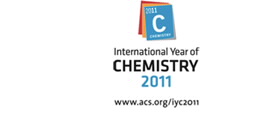FOR IMMEDIATE RELEASE | November 07, 2011
American Chemical Society President speaks at 2011 Symposium on Stratospheric Ozone and Climate Change
washington, Nov. 7, 2011 — Atmospheric chemistry, a cutting-edge discipline that is changing what we know about Earth’s atmosphere, will be a major focus of a four-day symposium that integrates new science and pragmatic approaches to climate policy.
“ACS is a proud sponsor of this important symposium that will draw on both new research and the pragmatism of successful, past climate and air quality policies,” said American Chemical Society (ACS) President Nancy B. Jackson, Ph.D. “In the current debates, hindsight is a blessing. The past policy models of the Montreal Protocol and the Clean Air Act can shed important light on how to incorporate science into creating beneficial, effective policies. The dialogue fostered in this conference could provide a very fruitful foundation for grappling with the climate challenges — on all levels — that we face today.”
Scientists, industry and government policy leaders, will gather together for the 2011 Symposium on Stratospheric Ozone and Climate Change, Nov. 7 — 10, at the Ronald Reagan Building and Trade Center in Washington, D.C. The symposium is a featured event of the U.N.-designated International Year of Chemistry (IYC).
Key symposium speakers will include:
- Honorable George Bush, 41st President of the United States (by video presentation)
- Ralph Cicerone, Ph.D., President of National Academy of Science
- C. Boyden Gray, White House Counsel, 1989-1993, former U.S. Ambassador to the European Union
- Nancy B. Jackson, Ph.D., ACS President
- Mario J. Molina, Ph.D., 1995 Chemistry Nobel Prize Winner
- Susan Solomon, Ph.D., Winner of the National Medal of Science
- Robert T. Watson, Ph.D., Former chair, Intergovernmental Panel on Climate Change (IPCC)
“The Montreal Protocol and Clean Air Act were designed and implemented 25 or more years ago based on the science of the day that informed us that ozone-depleting substances were degrading the structure of our atmosphere,” said Jackson. “In the last decade, the science atmospheric chemistry has dramatically improved thanks to laser technologies. This science is much more sophisticated, which is why the issues can be confusing — we know more.”
“Atmospheric chemistry, for example, can explain how changing organic molecules affect cloud formations and Earth’s rain patterns,” said Jackson. “Atmospheric chemistry is one of the most complex sciences, and clean-air issues affect billions of people. That’s why it is critical that we have sound climate policies.”
Funding agencies for the symposium include: the National Science Foundation, the Department of Energy, NASA, the World Meteorological Organization and World Climate Research Program, and Texas A&M and its College of Geosciences, the Division of Research and Vice President for Research along with the Bush School.
In addition to Texas A&M, the primary co‐sponsors of this event are American Meteorological Society, American Geophysical Union, and the American Chemical Society.
For more information about the symposium, visit: http://2011-iyc-o3.org/
To read the ACS climate change policy, click here.
The International Year of Chemistry (IYC) 2011 is a global celebration of chemistry and its contributions to the world around us as officially designated by the United Nations. This worldwide initiative is being celebrated under the auspices of the United Nations Educational, Scientific and Cultural Organization (UNESCO) and the International Union of Pure and Applied Chemistry (IUPAC).
For more information about IYC activities, please visit:
- 365 Chemistry for Life — profiles of fun, fascinating, groundbreaking chemistry. www.acs.org/iyc2011
- Kids and adults can participate in the IYC Global Water Experiment — www.acs.org/water2011
International chemistry events — www.chemistry2011.org/.
To automatically receive news releases from the American Chemical Society contact newsroom@acs.org.
###
Media Contact
Rachael Bishop
202-450-0904 (Aug. 27-31)
202-872-4445
r_bishop@acs.org


